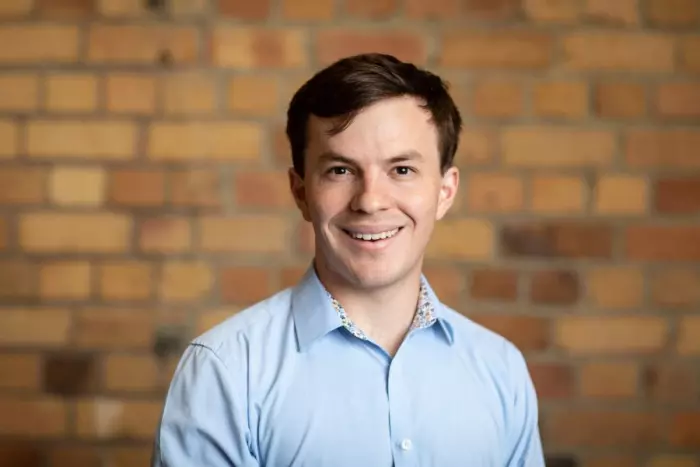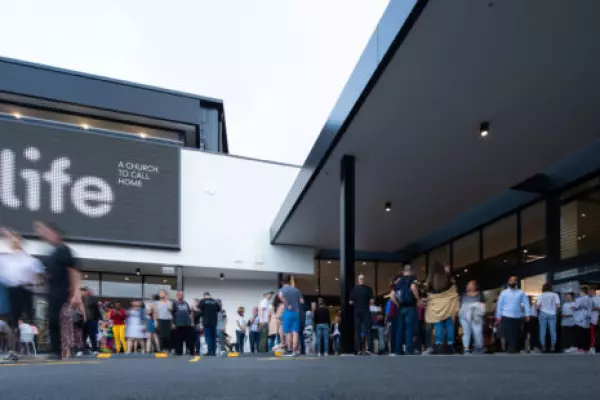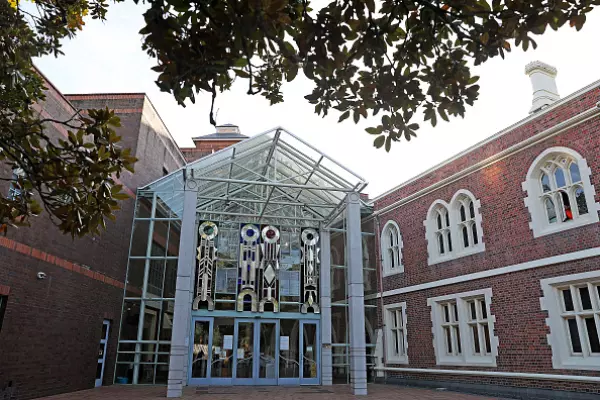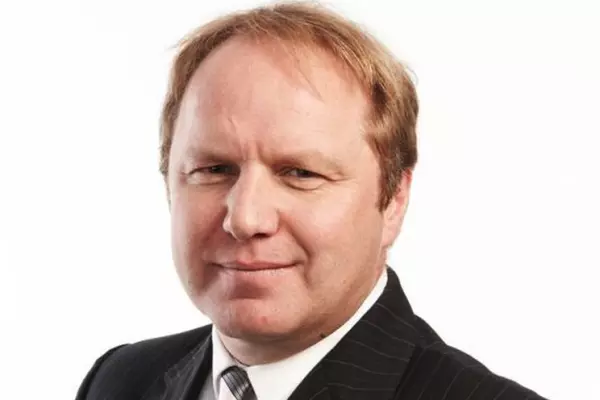Jamie Beaton doesn’t want to discuss Jake Millar. For 45 minutes, the founder of Crimson Education, the university admissions support company, has been talking nonstop, with blistering enthusiasm and pace, about his new book, Accepted! The question about Millar’s death is the only thing that stops him in his tracks.
“It was enormously challenging, to say the least,” he says after a long pause. “I don't want to speak about Jake in particular. I really want to be respectful of his legacy.”
It’s understandable why he wouldn’t want to talk about Millar, his friend and peer who took his own life in Nairobi, Kenya, last November, aged 26. The wound is still raw, and Beaton, like many others, will still be processing the shock of the loss of the young entrepreneur.
However, it might just be that Beaton never opens up about how it affected him, especially not to the media.
At 27, Beaton is a garrulous yet somewhat glib communicator, eager to talk at length about the merits of America’s Ivy League universities and of US$460m-valued Crimson Education but unwilling to reveal who he really is under the wunderkind facade. Vulnerability is not his forte.
When news of Millar’s death broke, Beaton, in a rare bout of impulse, took to LinkedIn to post a fulminating rebuke of the New Zealand media for its harassment of the founder of Unfiltered, a business education platform that provided inspirational interviews with and advice from high-profile individuals. The post was deleted within days, however, and replaced with a far more diplomatic eulogy.
Perhaps he was wise to do so. Beaton, like Millar, is a compelling subject for New Zealand journalists. Ambitious, immensely successful, private school-educated, a John Key protege and the CEO of a litigious company that is sometimes criticised for being superfluous and objectional – it might just be in his interests to keep the hounds off his scent.
Which is why anyone expecting his new book to be a raw tell-all account of his life and career will probably be disappointed.
Accepted! Secrets to Gaining Admission to the World's Top Universities is more of a (surprisingly readable) manual for very intelligent kids to get into the Ivy League and Oxbridge universities, based on Beaton’s own experience of navigating and essentially hacking the gruelling elite college admissions process and getting accepted into the world’s top 25 institutions.
But writing is, after all, an act of ego, and through the book Beaton reveals a lot more about his perspective, passions, weaknesses, and ambition than he likely would disclose to a mainstream journalist.
In describing how to court the best universities, he reveals an old-fashioned and almost romantic view on relationships and intimacy.
In instructing students on how to write the best common application essay, he reveals a blunt, but most likely accurate, belief that clichéd tales of adversity and triumph aren’t likely to impress a college admissions officer.
And in discussing his own inspiration for educational greatness, he reveals a family history that is surprisingly moving and devoid of privilege.
I interviewed Beaton after reading Accepted! and although he didn’t want to discuss Jake Millar, he was happy to talk about the book’s major themes, strategies and some of the unique admissions about a life spent in the top grades.
A “nerd through and through”
Crimson isn’t just a business to Beaton. It’s a manifestation of a lifelong obsession with education.
Inspired by his mother’s university qualifications hanging on the wall of their home in Glendowie, Auckland, Beaton began taking academic pursuits seriously at age five – when most other kids were still learning how to write the alphabet – and started taking competitive exams at age eight.
He describes himself as “a nerd through and through”. He wasn’t good at sports, but his intellectual ability allowed him to dominate in every academic subject with what he calls an unusual intensity.
“Academics was my athletics,” he says. “Every time I went to the exam room, I did it with a kind of competitive zeal and energy.”
Becoming the dux at St Kentigern School, a Presbyterian primary in Remuera, was the most glorious achievement of his young years.
At King’s College in Ōtāhuhu, he aspired to go into medicine because of the scientific and intellectual challenge. However, he decided to head to the Ivy League after a chance conversation with an older student who had got into Yale.
He began intensely researching and devised his own strategy to get into the world’s best universities by “taking the maximum possible academic subject load” and ensuring any activities were time-optimised – producing good results for a reasonable amount of effort.
He studied 10 Cambridge Curriculum A levels (most other students did four) and based his summer holidays on the American schedule, filling them with extra-curricular activities that would help him to earn his Duke of Edinburgh Gold Award.
At Harvard, in a clichéd American nerd/jock scenario, a pair of hulking student athletes singled him out and recruited him into their study group. He quickly discovered it was only a ploy to take advantage of his studiousness while they skipped class to play sports.
Being a top student, however, he completed the assignment single-handedly and even provided the athletes with cue cards so they could wing the class presentation without jeopardising the high grade. The group got an A, but Beaton resolved to form groups only with students of his calibre from then on.
On participation medals
Beaton has a well-known competitive streak, especially when it comes to Crimson’s engagement with rival companies. But Accepted! shows just how ingrained his views are.
“From the moment we are born, we are trained to compete for all things…” he writes in the opening lines, before lamenting what he calls the “biggest mistake in the Western world”, which is to hide from competition.
He questions the coddling tradition of giving talentless children participation trophies on the sports pitch to preserve their confidence. It seems kind and encouraging, he writes, but it could lead to a false perception of reality and affect a child’s ability to engage with the real world.
When it comes to Beaton’s educational ambitions, he has no interest in simply turning up – or coming in second. He once sat an exam while feeling ill and came second in the entire school. “To me it felt like my world imploded,” he writes.
He describes dropping all “time traps” – sports or academic pursuits where he had no chance of dominating and therefore a smaller chance of impressing prospective colleges.
Although exceptional at maths (in three years at Harvard, he completed a master’s degree in applied mathematics), he quit the mathematics Olympiad as a teenager because he couldn’t compete with the geniuses who typically win.
A champion debater at King’s College, while at Harvard he quit debating after coming third in a tournament.
And he ditched theatre in school after spending five Sundays “waiting around for hours watching the more talented leads do their scenes”.
“You need to be willing to swallow your ego and ditch time traps and plow your time into areas you can effectively compete in,” he tells readers.
“Apply the results/effort ratio. Choose the niche races … and compete where you can play to win, not participate.”
On privilege
Although fully immersed in and dependent on the exclusive world of elite education, Beaton has no delusions that everyone has the same opportunities to succeed.
In Accepted! he discusses privilege frequently, revealing a millennial’s awareness of the imposing barriers many students face when they don’t come from money, and the valuable life experience forgone when they do.
Some students don’t have the luxury of spending their holidays having fun and doing extra-curriculars, he writes, because they must work to support their families.
He praises Crimson students who have used their high-school holidays to run social initiatives, such as one who collected fruit from cafes to turn into nutritious smoothies for the homeless.
As for the wealthier students, he urges them to find part-time work at businesses like McDonald’s or KFC to learn some proper life lessons. “A clear sign of privilege in the [college] applications process is when a student has never worked any job throughout high school.”
Beaton’s own upbringing was filled with drive and dedication, but not a lot of money. He was born in Manurewa and raised by a single mother (his parents divorced when he was a baby) who was and still is his most important mentor and source of inspiration.
The family’s financial situation meant he was able to attend both King’s College and his first year of Harvard on scholarships, shaping his belief that the system, although exclusive, is accessible to anyone with ambition and the right guidance.
While not blind to the controversies of the Ivy League, whose high fees and socially skewed entry criteria ostensibly mean only the most privileged students can get in, he justifies its worth as “the most powerful way to create your own legacy”.
“Few things in life can lead you to stratospherically jump from social class,” he writes.
He defends the idea of legacy admits, or students who are admitted to an Ivy League college because their relatives are alumni, by strangely arguing that they may have inherited a “naturally higher” IQ.
He also justifies alumni donations to elite universities – a practice that is widely lambasted because of the size of the collective Ivy League endowment (US$200 billion) – because of the gateway it opens.
“Recognising all these arguments, I was still delighted as a student in my first year to receive more than US$40,000 in financial aid. It made the tuition bill affordable for my family,” he writes.
In his second year at Harvard, he landed a job with Julian Robertson’s Tiger Management, which – combined with the growing success of Crimson – meant he no longer qualified for a scholarship. But he says that was evidence that the college financial aid system works as an effective launch pad.
“The system… isn’t a system I designed, or my students designed, but it is what it is, and helping you crack it will help you realise your wildest ambitions.”
He has his share of problems
It’s clear that Beaton has no interest in using vulnerability or sentimentality as a strategy. He is not a victim and is far more comfortable touting his ambitions and accomplishments than his woes.
However, that doesn’t mean he hasn’t had to grapple with some heavy issues. In advising students which of life’s defining moments to share in a university common application essay, he reveals that one of his was when he turned 18 and was cathartically able to change his surname to Beaton from the name he’d inherited from his estranged father.
“…for my whole life, I had carried the name of a man I never met because changing it would require consent from both parents and I had never been in contact with one of them.”
He writes that his grandfather was his only male role model for much of his early life and describes his last year of high school as the most challenging year of his life, due to his grandmother developing Alzheimer’s.
“It was more challenging than Harvard, Stanford, Oxford or Yale. It was more challenging than balancing my Harvard degree with a full-time role investing at Tiger, a leading hedge fund, and another full-time role building Crimson.
“To this day, I literally have the occasional nightmare about my last year in high school.”
It’s easy to assume that the most pressing issues Beaton has to deal with these days are limited to his huge personal wealth, Crimson’s legal battles, and its long-awaited IPO. But it turns out the challenges he contends with are far more relatable to the average young person.
“I think the most challenging things that I've experienced have been people close to me that have gone through struggles with substances like alcohol and the really deep effect that's had on their lives,” he says. “A lot of people really close to me have been affected by this and I’ve worked really close with them to try and get them out of these really painful loops.”
All about family
It’s widely known Beaton doesn’t drink, doesn’t smoke, and – other than playing Warhammer, watching horror movies and playing poker – doesn’t take part in anything too wild.
Despite his wealth, his life is the opposite of hedonistic – it’s grounded in work, family and wholesome activities with friends.
When I ask him what he hopes to achieve in life, his response is classically conventional, and almost old-fashioned.
“Probably the first thing is a wonderful family with some lovely children, and then grandchildren, all who are doing well academically,” he says.
It’s the kind of view on family and relationships that he discusses in the book:
“Having a child and growing a family is ultimately what we are wired to do genetically to continue humanity’s march forward.
“When it comes to love, you want to find the one person you care for so dearly, and connect with so completely, that you’re ready to commit your entire life to that person,” he writes about relationships, before equating it with the ideal college courting behaviour.
“You want to be honourable, faithful and sincere. With colleges, you need to be that kind of lover.”
Like all his other values, however, they’re evidently drawn from one person. Paula Beaton is unequivocally her son’s key role model and guide, and he pays homage to her in the book with almost deity-focused reverence: “Mum, you made me the centre of your universe for 18 years and covering me in buckets of love. You had the stamina and wisdom to ignore the conventional parenting wisdom in New Zealand and raise me in your distinctive style. You are the best mum in the world, period.”
It’s the kind of effusive sentiment you don’t expect from a CEO. But perhaps above everything else, it explains who Beaton really is – the product of a hard-working woman determined to nurture her child’s enthusiasm and give him the tools to thrive.
“I grew up with a cultural norm that you get things in life through relentless hard work, a competitive will to win, and by thriving in formal education structures.
“My mum probably told me these things over the years, but I mainly got the message by soaking it up – by simply being her son.”














